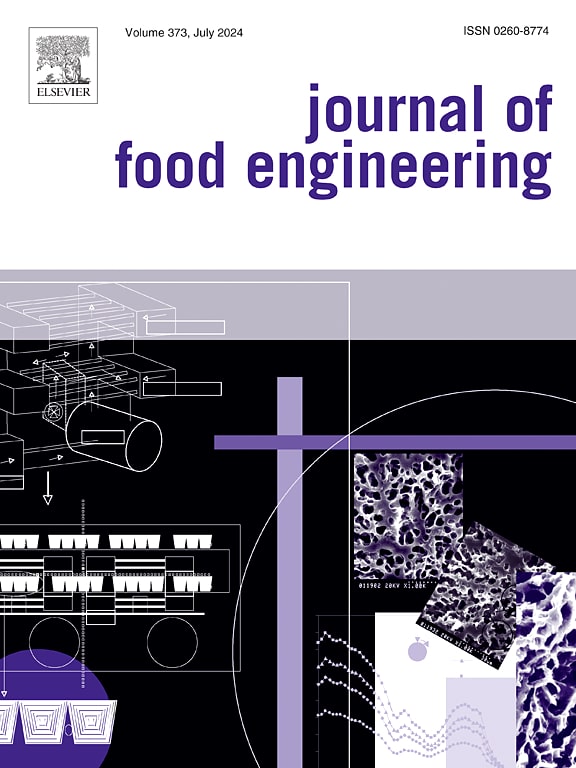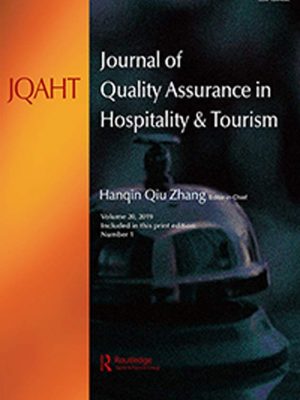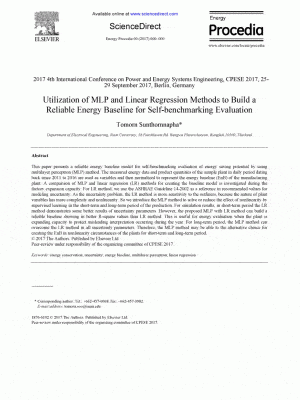
Role of solids composition on α-relaxation behavior, molecular structure and stability of spray-dried xanthones encapsulation systems around glass transition (2016)
Title : Role of solids composition on α-relaxation behavior, molecular structure and stability of spray-dried xanthones encapsulation systems around glass transition
Researcher : Tunyaporn Sirilert, Nattapol Kajonboon and Nattiga Silalai *
Department : ภาควิชาเทคโนโลยีการอาหาร คณะวิทยาศาสตร์ มหาวิทยาลัยสยาม
E-mail : *ผู้ประสานงานหลัก: tunyapornfood@gmail.com
ฐานข้อมูลงานวิจัย มหาวิทยาลัยสยาม : –
Link to article: Journal of Food Engineering Volume 174, April 2016, Pages 85-91 https://doi.org/10.1016/j.jfoodeng.2015.11.022
Journal : Journal of Food Engineering / in Scopus
Bibliography : Silalai, N., Sirilert, T., Roos, Y. H., Potes, N., & Devahastin, S. (2016). Role of solids composition on α-relaxation behavior, molecular structure and stability of spray-dried xanthones encapsulation systems around glass transition. Journal of Food Engineering, 174, 85-91. https://doi.org/10.1016/j.jfoodeng.2015.11.022

Special Interest Tourism
Title : Special Interest Tourism
Authors : Bongkosh N. Rittichainuwat
Department : Service Industry Management, Siam University, Bangkok, Thailand
E-mail : Bongkosh N. Rittichainuwat ngamson@gmail.com
Description : This research-based textbook covers 15 chapters on food, film, shopping, medical, ghost, and suicide tourism, based on research conducted over 15 years on tourists from East Asia and Southeast Asia, the UK, the USA, Australia, Germany, and New Zealand. It introduces students, researchers, educators, tourist bureaus, and tour operators to the demands of affluent tourists from the newly industrialized countries of East Asia and Southeast Asia.
Link to E-book: Special Interest Tourism
Bibliography : Rittichainuwat, B. N. (2018). Special Interest Tourism (3rd ed.). Newcastle upon Tyne, UK: Cambridge Scholars Publishing.
Author details in Scopus: Rittichainuwat, Bongkosh Ngamsom
Google Scholar Citations: https://scholar.google.com/citations?user=ifUlKJoAAAAJ&hl=en

The Application of Ethnographic Techniques for Community-Based Tourism Research
Title : The Application of Ethnographic Techniques for Community-Based Tourism Research
Researcher : Nantira Pookhao and Yuvarin Sripan
Department : Faculty of Liberal Arts , Siam University, Bangkok, Thailand
E-mail : nantira.sand.pookhao@gmail.com
Abstract : Tourism generates massive income for Thailand. Using tourism as an economic goal has both positive and negative impacts on local community located in or near tourism destination. To mitigate negative impacts of tourism, local people should participate in its planning, management and operation. Participation of local people in the process of tourism development is to promote the community-based tourism (CBT) initiation. CBT is expected to lead to the balance of ecological conservation and development by concentrating on the quality of life of the local people. It is a new tourism phenomenon in Thai rural society that endeavours for community self reliant practice. Operating CBT, community members are associated with and cannot be separated from the tourism activities and touristic process, as active rather than passive actors. Given that tourism activities are hardly distinguished from their local way of life and CBT is associated with participation towards empowerment and local sociocultural realm, ethnographic technique is a considerable choice to conduct a CBT research. It enables indepth and holistic view in relation to the impact of power and the processes of globalization on local socioculture and the findings can be used for further tourism development towards sustainability.
Keywords : Community-based tourism, local participation, research method, ethnography, Thailand
Download PDF: The Application of Ethnographic Techniques for Community-Based Tourism Research
Proceeding : การประชุมวิชาการระดับชาติ สมาคมสถาบันอุดมศึกษาเอกชนแห่งประเทศไทย ประจำปี 2560 วันที่ 25 พฤษภาคม 2560 มหาวิทยาลัยรัตนบัณฑิต APHEIT Conference 2017
Link to Proceeding: http://apheitconference.siam.edu/index.php/en/proceedings-2012-2016
Bibliography : Nantira Pookhao & Yuvarin Sripan. (2560). The application of ethnographic techniques for community-based tourism research. In Proceedings of PHEIT Conference 2017 (pp. 1036-1046). Bangkok, Thailand.

The Mediation Factors Influencing Adoption of Social Networking Technology into 21st Century Education: A Review of the Iiteratures
Title : The mediation factors influencing adoption of social networking technology into 21st century education: A review of the literatures
Researcher : Dr.Tanakorn Limsarun
Department : Master of Business Administration, Siam University, Bangkok, Thailand
E-mail : dr.tanakorn@siam.edu
Abstract : Nowadays, more than a billion individuals around the world are connected and networked together in the digital environment in order to create, collaborate and contribute their knowledge, wisdom. One of the potential tools to connect with other people on a massive scale is a social networking website or social media. Moreover, it has been rapidly adopted by people worldwide; enabling the opportunities for learning, presenting and construction of relationship among the members and it is one of the most widespread adoptions in a new generation of 21st century education. Before there is no place for lecturing in the 21st century classroom, educational institutions have to adapt themselves to compete in the new era of education also have to find the efficient ways to reach their target students, when used social media tools appropriately and wisely, teacher, students and classrooms are transformed into the rich interactive environment. The documentary research method has been adopted in this academic paper. The finding has shown that educational institution factors which are organizational culture, management support, Intellectual property and organizational policies; teaching factors which are content, method, process, technology proficiency, training and knowledge of resource; personal factors which are technology proficiency, experience, attitude, motivation and confidence play an important roles toward the success of adopting social networking in 21st century educations.
Key words : Management Information System, Social Networking and 21st Century Education
Publication : วารสารวิชาการ ฉบับมนุษยศาสตร์และสังคมศาสตร์ สมาคมสถาบันอุดมศึกษาเอกชนแห่งประเทศไทยฯ ปีที่ 21 ฉบับที่ 2 ธันวาคม 2558 Apheit Journal Vol.21 No.2 December 2015
Link to Publication: http://apheit.bu.ac.th/index.php?id=135
Download PDF : The mediation factors influencing adoption of social networking technology into 21st century education: A review of the literatures
Bibliography : Tanakorn Limsarun. (2015). The mediation factors influencing adoption of social networking technology into 21st century education: A review of the literatures. Apheit Journal, 21(2), 124-132.

The Sustainability of Small and Medium-sized Enterprises (SMEs) in A Digital Economy Era
Title : The Sustainability of Small and Medium-sized Enterprises (SMEs) in A Digital Economy Era
Researcher : Dr.Tanakorn Limsarun
Department : Master of Business Administration, Siam University, Bangkok, Thailand
E-mail : dr.tanakorn@siam.edu
Abstract : In an economic downturn, the adoption of digital economy and utilization of Information Technology with Small and Medium-sized Enterprise (SMEs) seem to be increasingly important and becoming a new foundation for entrepreneurs today.These are believed to offer a number of advantages regarding the effi ciency, effectiveness, and innovation across the business functions which can lead to more productivities and new opportunities in the market. This will directly induce a great number of new entrepreneurs in the market, removing market barriers and enhance the competitive advantages especially from the SMEs sector – the backbone of the economy in most countries. However, it is not a straightforward task. On one hand, myriads of new entrepreneurs are enjoying the new opportunities that their older generations never had and at the same time their customers are also adjusting their consumption behavior from the old ways to the digital ways very well. On the other hand, researches have found that most SMEs still face the problems in relation to how they can digitize their business structures and functions such as fi nance, marketing and human resources and above all international cooperation. Therefore, this paper aims to highlight key success factors and provide a guideline for SMEs how to start successfully in the key emerging markets as well as introduce key sustainability factors in a digital economy era. The fi ndings of this research should prove valuable to any size of businesses and create a greater awareness of the advantages of the digital economy and business sustainability of SMEs. In sum, it was shown that SME entrepreneurs had to carefully consider the relevant organizational and individual factors as well as the degree of innovation adoption in the organization in order to warrant their business successes in this post-modern business era, the digital economy.
Key words : Sustainability, Small and Medium-sized Enterprises (SMEs), Digital Economy
Publication : วารสารวิชาการบริหารธุรกิจ สมาคมสถาบันอุดมศึกษาเอกชนแห่งประเทศไทยฯ ปีที่ 4 ฉบับที่ 2 กรกฎาคม-ธันวาคม 2558
Journal of Business Administration The Association of Private Higher Education Institutions of Thailand Vol.4 No.2 Jul-Dec 2015
Link to Publication: https://www.tci-thaijo.org/index.php/apheitvu/issue/view/8163
Download PDF : The Sustainability of Small and Medium-sized Enterprises (SMEs) in A Digital Economy Era
Bibliography : Tanakorn Limsarun. (2015). The sustainability of small and medium-sized enterprises (SMEs) in a digital economy era. Journal of Business Administration The Association of Private Higher Education Institutions of Thailand, 4(2), 113-124.

Tourists’ and tourism suppliers’ perceptions toward crisis management on tsunami (2013)
Title : Tourists’ and tourism suppliers’ perceptions toward crisis management on tsunami
Researcher : Bongkosh N. Rittichainuwat
Department : International Program in Hotel & Tourism Management, Siam University, 235 Petkasem Rd., Phasichareon, Bangkok 10160, Thailand
E-mail : Bongkosh N. Rittichainuwat ngamson@gmail.com
Abstract : This study describes tourists’ perceptions toward the importance of safety measures across tourists who stay at different types of accommodation; compares the pre and post analysis of such safety measures during normal time and six months after the disaster and identify safety measures that contribute the most to the sense of beach safety. This study uses a survey, interviews, and observation. The target population was inbound tourists traveling to Thai beaches. It was found that respondents who participated in the survey six months after the March 2011 Japanese tsunami placed more importance on almost all tsunami safety measures than those who did the survey six years after the Indian Ocean tsunami. Guests at guest houses, placed the highest importance on all safety measures, whereas guests at upscale hotels, placed the lowest importance. Moreover, perceptions of beach safety were dependent on the availability of a tsunami evacuation system and a crisis management plan.
Publication : Tourism Management Vol.34 February 2013
Link to Publication: https://www.sciencedirect.com/journal/tourism-management/vol/34/suppl/C
Bibliography : Rittichainuwat, B. N. (2013). Tourists’ and tourism suppliers’ perceptions toward crisis management on tsunami. Tourism Management, 34, 112-121. https://doi.org/10.1016/j.tourman.2012.03.018
Author details in Scopus: Rittichainuwat, Bongkosh Ngamsom
Scopus Citations: https://www.scopus.com/sources.uri?DGCID=Scopus_blog_post_check2015
Google Scholar Citations: https://scholar.google.com/citations?user=ifUlKJoAAAAJ&hl=en

Tourists’ Motivations to Travel during Financial Crisis (2014)
Title : Tourists’ Motivations to Travel during Financial Crisis
Researcher : Bongkosh N. Rittichainuwat, Goutam Chakraborty & Suphaporn Rattanaphinanchai
Department : Service Industry Management, Siam University, Bangkok, Thailand
E-mail : Bongkosh N. Rittichainuwat ngamson@gmail.com
Abstract : This study aims to describe the motivations of tourists to travel during financial crises and to identify the impact of those travel motivations on the likelihood that tourists would travel during financial crises. The findings suggest short-distance destinations, novelty, and culture would motivate tourists during financial crises; but tourist recreation would deter them from traveling domestically. This study enriches the literature on the travel motivations of domestic tourists, particularly Thai tourists, to travel during financial crises.
Publication : Journal of Quality Assurance in Hospitality & Tourism Vol.15 No.1 January-March 2014
Link to Publication: https://www.tandfonline.com/toc/wqah20/15/1?nav=tocList
Bibliography : Rittichainuwat, B. N., Chakraborty, G. & Rattanaphinanchai S.(2014). Tourists’ motivations to travel during financial crisis. Journal of Quality Assurance in Hospitality & Tourism, 15(1), 100-113. DOI: 10.1080/1528008X.2014.855541
Author details in Scopus: Rittichainuwat, Bongkosh Ngamsom
Scopus Citations: https://www.scopus.com/sources.uri?DGCID=Scopus_blog_post_check2015
Google Scholar Citations: https://scholar.google.com/citations?user=ifUlKJoAAAAJ&hl=en

Tourists’ Perceived Risks Toward Overt Safety Measures (2013)
Title : Tourists’ Perceived Risks Toward Overt Safety Measures
Researcher : Bongkosh N Rittichainuwat
Department : Service Industry Management, Siam University, Bangkok, Thailand
E-mail : Bongkosh N. Rittichainuwat ngamson@gmail.com
Abstract : This study aims to assess tourists’ perceptions toward overt safety measures. The study segments tourists into four different groups depending on their perceptions toward overt safety measures, type of accommodation, and purpose of visit. A total of 476 respondents were segmented into special occasion tourists, leisure mid-priced tourists, frequent business travelers, and backpackers. A two-step cluster analysis and ANOVA were used to analyze the data. The results show that, all clusters, except the backpacker segment, feel quite safe toward overt safety measures. Whereas the special occasion tourists at luxury hotels felt the safest toward overt safety measures, they concurrently were the most likely discouraged with too-stringent overt safety measures. Although most tourists feel safe about overt safety measures, a stringent increase in safety measures could frighten them because such measures could create a false perception that something untoward has previously happened at the destination. Hence, the old claim that stringent safety measures frighten tourists remains a classic rule of thumb. Therefore, hoteliers must find an appropriate balance in the extent of overt safety measures so as not to exceed the acceptable safety threshold of tourists.
Publication : Journal of Hospitality and Tourism Research Vol.37 No.2 May 2013
Link to Publication: https://journals.sagepub.com/toc/jhtd/37/2
Bibliography : Rittichainuwat, B. N. (2013). Tourists’ perceived risks toward overt safety measures. Journal of Hospitality & Tourism Research, 37(2), 199–216. https://doi.org/10.1177/1096348011425494
Author details in Scopus: Rittichainuwat, Bongkosh Ngamsom
Scopus Citations: https://www.scopus.com/sources.uri?DGCID=Scopus_blog_post_check2015
Google Scholar Citations: https://scholar.google.com/citations?user=ifUlKJoAAAAJ&hl=en

Tunable Gm-C Floating Capacitance Multiplier (2018)
Title : Tunable Gm-C Floating Capacitance Multiplier
Researcher : Wipavan Narksarp*, Yongyuth Naras*, and Vinai Silaruam
Department : *Department of Electrical Engineering, Faculty of Engineering, Siam University
E-mail : wipavan.nar@siam.edu,yongyuth.nar@siam.edu
Bibliography : Narksarp, W., Naras, Y., & Silaruam, V. (2018). Tunable Gm-C Floating Capacitance Multiplier. In ECTI-CON 15th International Conference on Electrical Engineering/Electronics, Computer, Telecommunications and Information Technology (pp. 413-416). Chiang rai: Rajanangala University of Technology Lanna.

Utilization of MLP and Linear Regression Methods to Build a Reliable Energy Baseline for Self-benchmarking Evaluation (2017)
Title : Utilization of MLP and Linear Regression Methods to Build a Reliable Energy Baseline for Self-benchmarking Evaluation
Researcher : Tomorn Sunthornnapha
Department : Department of Electrical Engineering, Siam University
E-mail : tomo.soo@siam.edu
Abstract : This paper presents a reliable energy baseline model for self-benchmarking evaluation of energy saving potential by using multilayer perceptron (MLP) method. The measured energy data and product quantities of the sample plant in daily period dating back since 2011 to 2016 are used as variables and then normalized to represent the energy baseline (EnB) of the manufacturing plant. A comparison of MLP and linear regression (LR) methods for creating the baseline model is investigated during the factory expansion capacity. For LR method, we use the ASHRAE Guideline 14-2002 as a reference in recommended values for modeling uncertainty. As the uncertainty problem, the LR method is more sensitivity to the outliners, because the nature of plant variables has more complexity and nonlinearity. So we introduce the MLP method to solve or reduce the effect of nonlinearity by supervised learning in the short-term and long-term period of the production. For simulation results, in short-term period the LR method demonstrates some better results of uncertainty parameters. However, the proposed MLP with LR method can build a
reliable baseline showing in better R-square values than LR method. This is useful for energy evaluation when the plant is expanding capacity to protect misleading interpretation occurring during the year. For long-term period, the MLP method can overcome the LR method in all uncertainty parameters. Therefore, the MLP method may be able to the alternative choice for creating the EnB in nonlinearity circumstances of the plants for short-term and long-term period.
Keywords : energy conservation; uncertainty; energy baseline; multilayer perceptron; linear regression
Download PDF: Utilization of MLP and Linear Regression Methods to Build a Reliable Energy Baseline for Self-benchmarking Evaluation
Link to Conference: 2017 4th International Conference on Power and Energy Systems Engineering, CPESE 2017, 25-29 September 2017, Berlin, Germany
Bibliography : Sunthornnapha, T. (2017). Utilization of MLP and Linear Regression Methods to Build a Reliable Energy Baseline for Self-benchmarking Evaluation. In 2017 4th International Conference on Power and Energy Systems Engineering, CPESE 2017, 25-29 September 2017. Berlin: Germany.